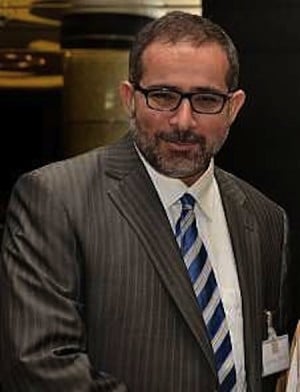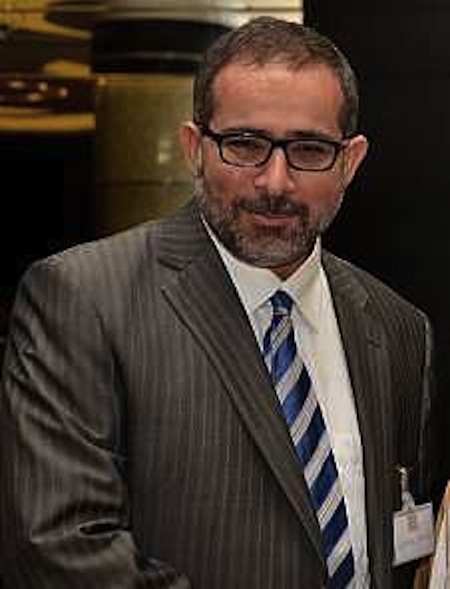By Libya Herald staff.

Tripoli, 4 February 2014:
Libyan Ambassador to the United Arab Emirates (UAE) Aref Ali Nayed has warned that the . . .[restrict]rise of the Tripoli-based Libya Dawn government headed by Omar Al-Hassi has opened the door to Libya becoming as a base for global terrorism.
Nayed, who is in Washington this week making a pitch for US involvement in Libya’s war on terror, said that most people to date were unaware of how much the Islamic State (IS) had infiltrated Libya. “It’s the most important risk to security of the region, be it to our Arab neighbours, our African neighbours or our European neighbours across the Mediterranean,” Nayed told Al-Monitor.
As the US Congress prepares to debate the authorisation of continued war against IS, Nayed has traveled to the Washington to ensure that Libya is part of the discussion, pointing out that the internationally-recognised House of Representatives (HoR) has announced last week its desire to be part of the international coalition against IS and would welcome US help within its own borders.
“There is no reason to treat Libya as an isolated case, especially when it is the most important country when it comes to resources. You cannot fight [IS] effectively in Iraq or Syria without including Libya because of the flow of arms, fighters and money . . . You cannot fight networks by simply focusing on certain nodes; it’s like trying to eliminate cancer from a body by treating one tumor,” Nayed insisted.
Nayed went on to clarify that Libya was not interested in American boots on the ground, but rather wanted help with humanitarian aid, technical coordination with NATO, Africom and regional forces on counter-terrorism, border control and trafficking of arms and fighters. The Beida-based Libyan government would also welcome air strikes on IS strongholds like those that are being carried out in Syria and Iraq, Nayed added.
When asked about the upcoming UN-sponsored peace talks that will start in Libya in the next few days, Nayed said that was in favour of them, but cautioned that a unity government could not include those who allow for the spread of terrorism.
Nayed went on to say that the “two-pronged narrative” that Washington seemed to have bought into — that the situation is hopeless and the two rival factions in Tripoli and Beida just need to agree to share the spoils — was ridiculous.
“Muslim-Brotherhood-associated lobbyists have been pushing this line of ‘two governments that have to discuss things with each other.’ That’s a huge mistake and a betrayal of the values of democracy,” Nayed said. The guys in Tripoli are basically a bunch of thugs. They’re not partners in the fight against terrorism; they are precisely part of the problem. They are incubating terrorism and using the democratic system to further their ends.”
The Tripoli government, or “National Salvation Government”, emerged in August of 2014 after militias from Misrata attacked the Tripoli International Airport and took over Tripoli following the 25 June election of the HoR. It replaced the Islamist-dominated and highly unpopular Muslim Brotherhood-dominated General National Congress (GNC).
Since October 2014, the presence of IS activity has increased in Libya. The eastern town of Derna, a long-time stronghold of extremist activity, officially established itself as part of the Caliphate after its Islamic Youth Council declared its allegiance to IS in early October. Since then, there have been reports of IS activity in Sirte and Tripoli. [/restrict]








